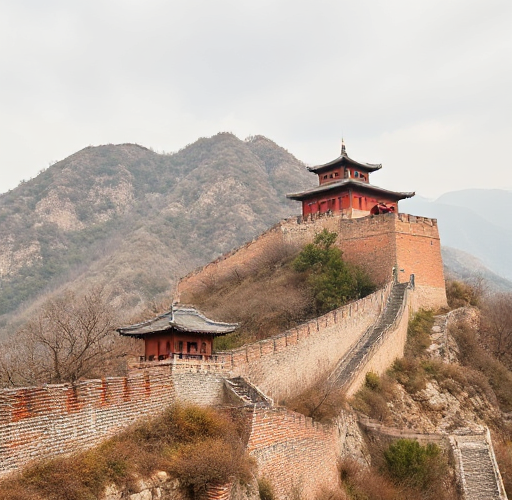But the wall isn’t just about defense; it’s also steeped in stories. Each stone tells a tale of warriors and laborers, of victories and losses. Have you ever heard the whispers of history as you explore its labyrinthine paths? It’s like walking through a living museum, where every twist and turn unfolds a new layer of the narrative.
The beauty of the Great Wall isn’t solely in its construction; it’s how it blends with nature. Picture this: as the sun rises, casting a golden glow over the rugged landscape, the wall stands proud like an ancient guardian watching over the land. And when the seasons change, it transforms, draped in snow or adorned with vibrant autumn leaves, captivating photographers and travelers alike.
It’s no wonder the Great Wall is a UNESCO World Heritage Site and one of the New Seven Wonders of the World. The iconic structure isn’t just a tourist trap; it’s a powerful reminder of our shared human experience—of strength, resilience, and the relentless pursuit of dreams.
The History Behind Its Construction
Imagine standing in a bustling workshop centuries ago, surrounded by the sound of chiseling stone and the chatter of workers. The plans were ambitious, filled with breathtaking details and architectural marvels that seemed almost impossible at the time. Have you ever been captivated by a project that seemed to defy the limits of creativity? That’s exactly what happened when this magnificent structure was born.
The construction wasn’t just about bricks and mortar; it was a grand collaboration of dreams and ideas. Think about the challenges they faced! Natural disasters, financial issues, and even political turmoil could halt progress. Each setback felt like adding an extra weight to the already heavy shoulders of the builders. Yet they persevered, driven by a shared goal to create something monumental.
Do you know that the materials used were often symbolic? They weren’t chosen at random—they told stories of culture, artistry, and the era they belonged to. Visualize them carefully selecting stones and metals, shaping not only a physical structure but also a slice of history.
Its Cultural Significance in China
The concept of “guanxi,” or relationships, is central to Chinese culture, impacting everything from business dealings to familial ties. It’s like the oil that keeps the machinery of social interaction running smoothly. Have you ever noticed how relationships can change the course of decisions? In China, cultivating friendships is practically an art form, essential for success and stability in both personal and professional spheres.
Festivals in China, such as the Lunar New Year, are another testament to its rich cultural significance. Picture millions of red lanterns lighting up the night sky, families gathering to share meals, exchange gifts, and honor their ancestors. It’s not just a celebration; it’s a profound connection to the past, a time when ancient customs come alive, and the spirit of community blossoms. The colors, sounds, and flavors create an experience that resonates deeply with the heart.
Philosophical beliefs also play a significant role. Confucianism, for instance, emphasizes harmony, respect, and the importance of social roles. It’s like a guiding compass, directing interpersonal relationships and societal structure. This foundational philosophy shapes attitudes towards education, governance, and even family life.

























Add comment